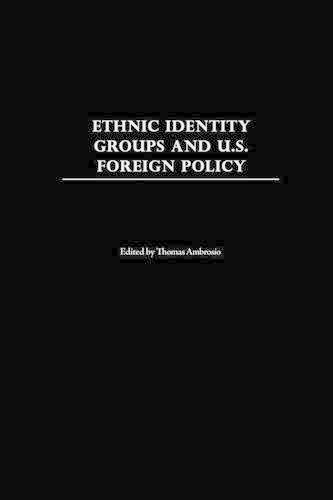
Ethnic Identity Groups and U.S. Foreign Policy
(Paperback)
Available Formats
Publishing Details
Ethnic Identity Groups and U.S. Foreign Policy
By (Author) Thomas Ambrosio
Bloomsbury Publishing PLC
Praeger Publishers Inc
30th November 2002
United States
Classifications
General
Non Fiction
Comparative law
327.73
Physical Properties
Paperback
240
Width 156mm, Height 235mm
369g
Description
Ethnic identity groups-defined broadly to include ethnic, religious, linguistic, or racial identities-have long played a role in the formulation and implementation of U.S. foreign policy. Yet ethnic group influence increased significantly following the Cold War. Ambrosio and his colleagues provide a unique collection of essays on the relationship between ethnic identity groups and U.S. foreign policy. The book covers a wide range of issues, historical periods, and geographic regions. Integrated chapters examine four major issues: the traditional (white) role of ethnicity in U.S. foreign policy; ethnic identity group mobilization; newcomers to the foreign policy process; and the complexities of ethnic identity politics. An in-depth literature review is provided, as well as an overview of the moral/ethical issues surrounding ethnic group influence on U.S. foreign policy, especially after the events of September 11, 2001. This volume is designed to spark debate on the theoretical, historical, and ethical issues of ethnic identity group influence on U.S. foreign policy. As such, it will be of special interest to scholars, students, researchers, policymakers, and anyone concerned with the making of American foreign policy.
Author Bio
THOMAS AMBROSIO is Assistant Professor of Political Science at North Dakota State University. He is the author of Irredentism: Ethnic Conflict and International Politics (Praeger, 2001).
